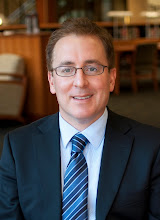The Supreme Court of California has upheld (in a unanimous opinion) a Los Angeles ordinance prohibiting persons from soliciting funds at Los Angeles International Airport. Hare Krishnas brought suit challenging the ordinance as a violation of the free speech clause of the California Constitution.
The court was asked to decide two questions: (1) whether the airport (including the terminal, the surrounding sidewalks, and the parking areas) is a public forum under the free speech clause, and (2) if so, whether the solicitation ban violates the California Constitution. The court declined to decide the first question, ruling that even if LAX is a public forum the ordinance is a reasonable time, place, and manner regulation. The California Supreme Court concluded that solicitation of donations poses unique dangers of coercive or fraudulent conduct. Those dangers were exacerbated, according the court, in a busy international airport like LAX. The ordinace was enacted for the purpose of addressing these dangers, said the court, and was narrowly tailored to face-to-face solicitations. The Hare Krishnas remained free to distribute lierature, speak to willing travelers, and even solicit by distributing self-addressed stamped envelopes. A concurring opinion by Justice Kennard concluded that under the California Constitution the airport's public areas are indeed public forums. A concurring opinion by Justice Chin concluded that LAX is a non-public forum.
The Supreme Court has answered the question whether airport terminals are public forums in the negative, reasoning in part that these places have not been around "from time immemorial" and are not generally designated for expression. In all other respects the Supreme Court of California's decision is consistent with the manner in which the Supreme Court has addressed solitiation in airports and other crowded public venues under the First Amendment. The Court has upheld bans on direct solicitation in crowded places like airports for essentially the same reasons articulated by the Supreme Court of California.
Many airport terminals are essentially like Main Streets, in the sense that they have commerical establishments, thoroughfares, and even some public offices and functions on site. But as the Supreme Court's precedents suggest, officials have broad discretion to limit speech in the terminals and surrounding public areas. Since September 11, 2001, it has been more difficult to advocate for robust speech rights in the public areas of major international airports. I am less certain of the dangers of theft and fraud in direct solicitation situations than the courts seem to be. The cases require no proof that this is a real danger or has occurred with any frequency. Regardless, it is fortunate that at LAX and some other airports the restrictions are narrowly tailored to direct face-to-face solicitation. Airports are some of the only places where a large public audience can be found in our contemporary society. Yet they are essentially treated as non-places --venues devoted solely to travel. Accepting, as I think one must, that the travel function is primary, allowing for at least some face-to-face expression and distribution of literature at these places preserves at least some limited breating space for public speech.
Subscribe to:
Post Comments (Atom)


So what exactly is the concern of receiving money from a traviling passenger? Is it that your concerned about a solicitation being fraudulant or not? So if thats it, then if you ask a person to send in the donation then it still doesnt make a differance on the legimicy of the orginization. And what security issue? If you stop someone to preach, your stillstopping them anyway, and to send in the donation? Your still asking for money.
ReplyDelete